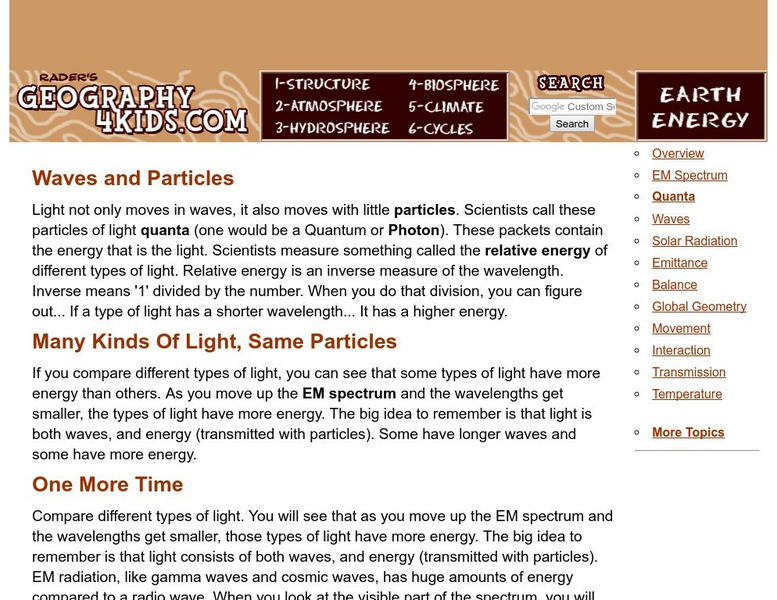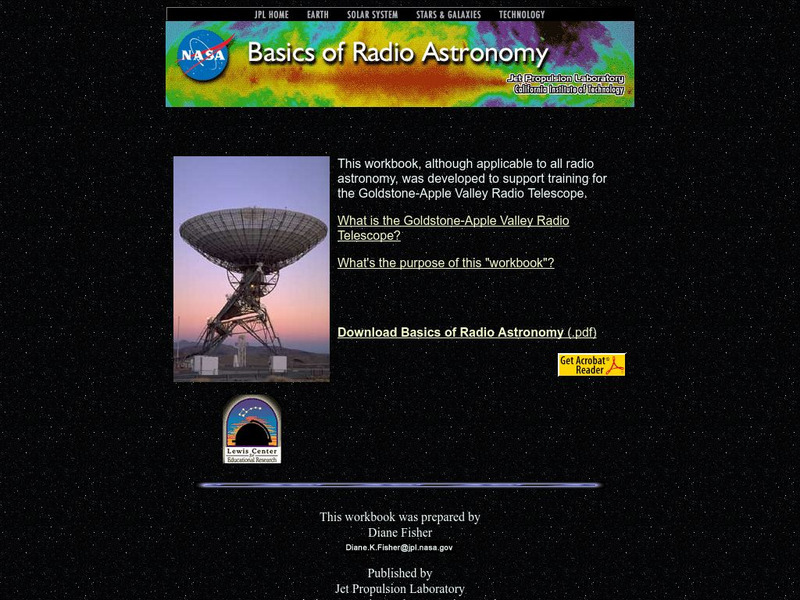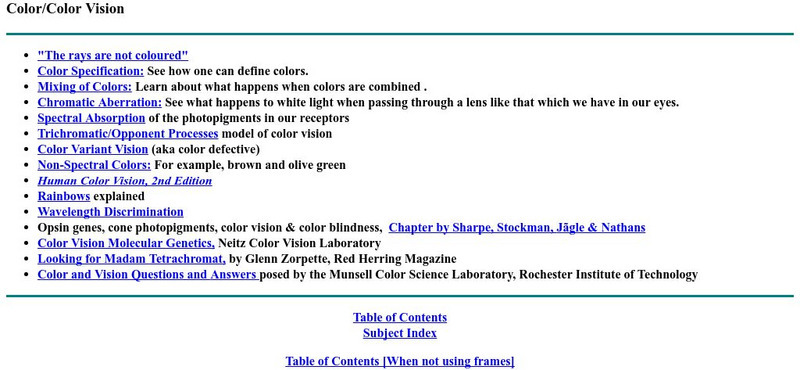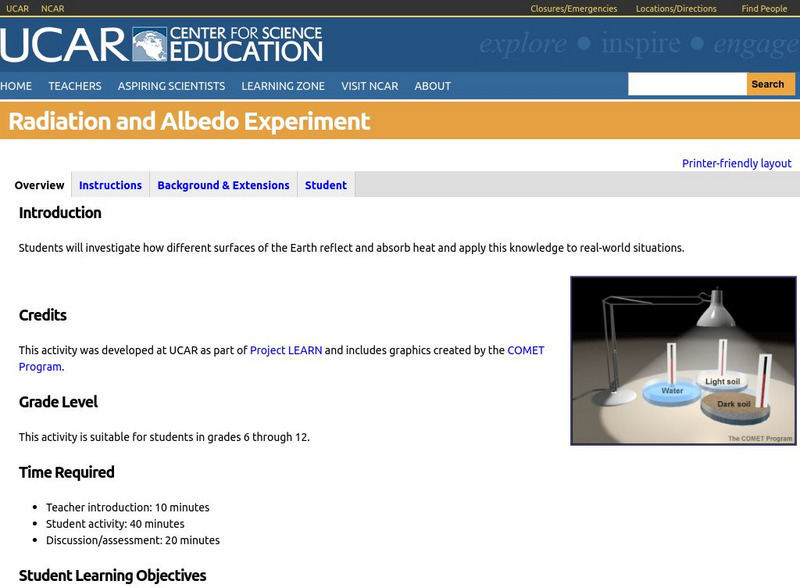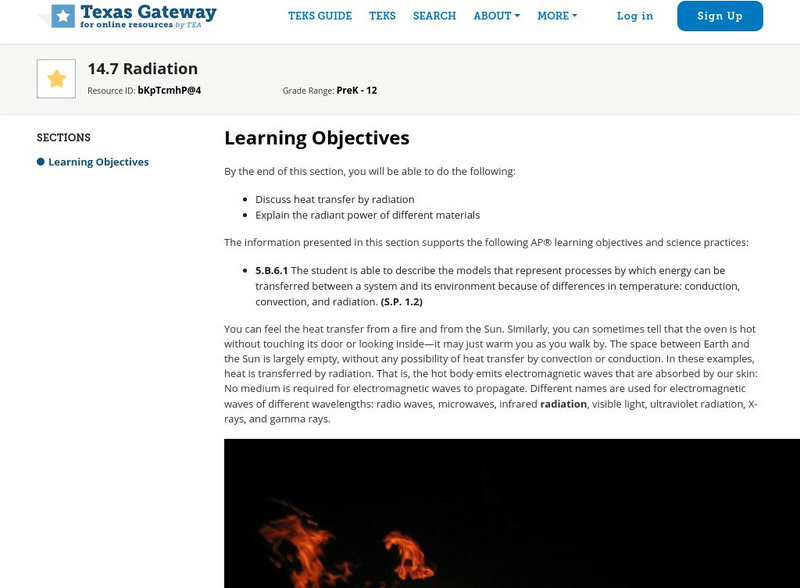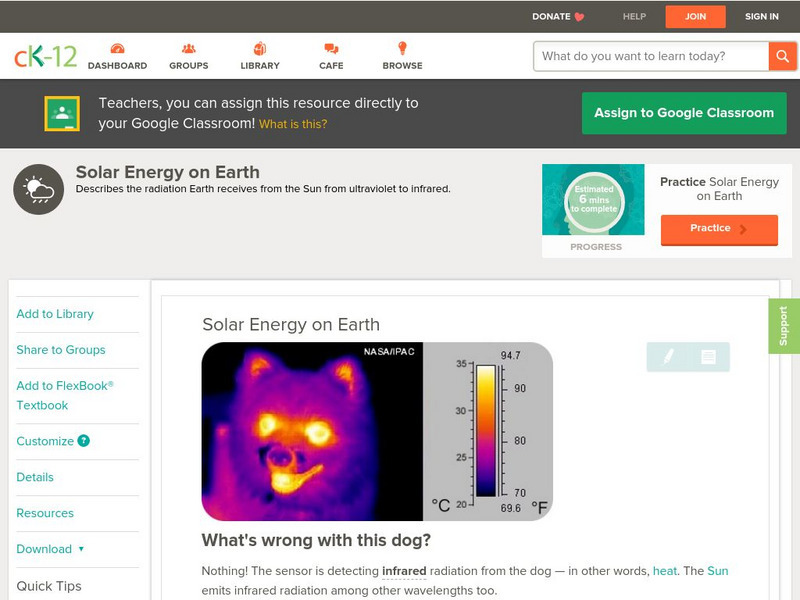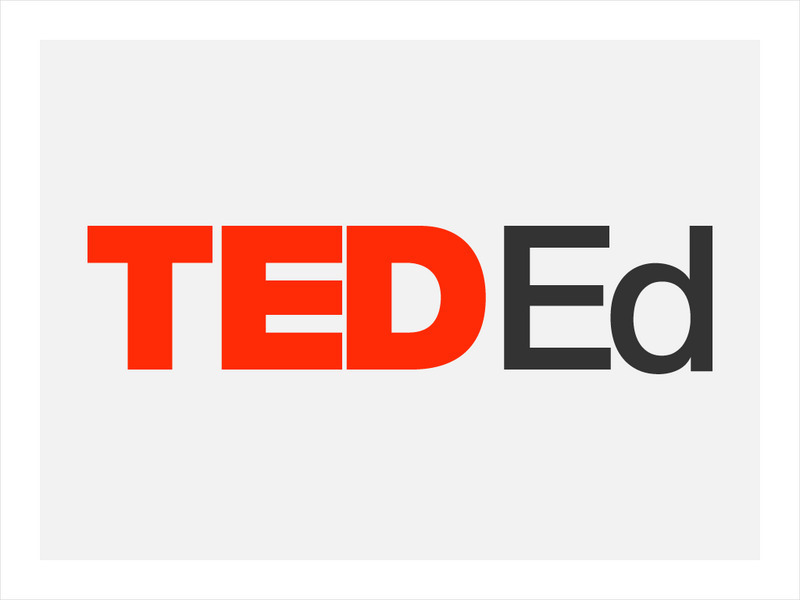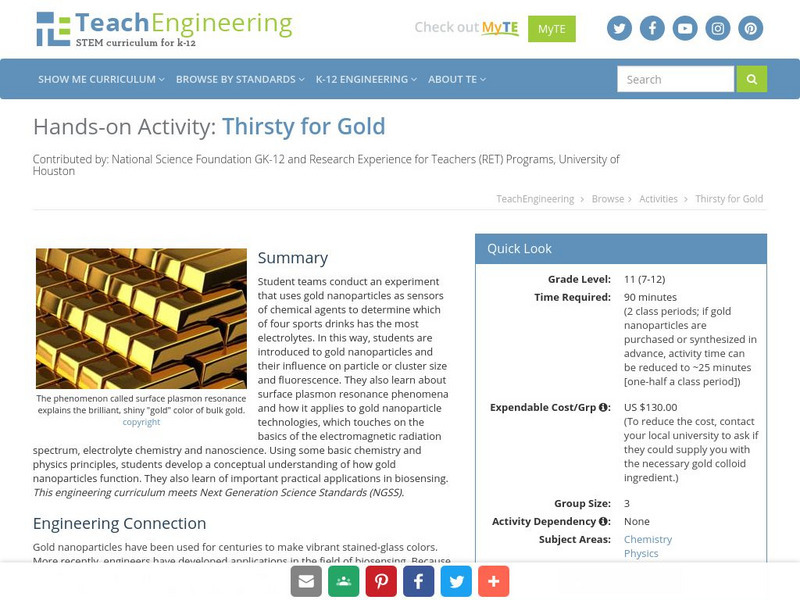TeachEngineering
Teach Engineering: Light Up Your Life
Students are introduced to the correct technical vocabulary for lighting, which is different than layperson's terms. They learn about lamp (light bulb) technology and how to identify the various types of lighting in their spaces. They...
Georgia State University
Georgia State University: Hyper Physics: Wave Particle Duality
The dualistic nature of light is discussed. The photoelectric effect and the Davisson-Germer experiment are contrasted as empirical evidence supporting each of the two views - particle and wave - of the nature of light. The photoelectric...
Sophia Learning
Sophia: Radiation and Energy: Lesson 2
This lesson discusses the light spectrum and its influence on living things. It is 2 of 3 in the series titled "Radiation and Energy."
Cosmo Learning
Cosmo Learning: Modern Surveying Techniques
A collection of video lectures from a course introducing students to modern surveying techniques. Webpage includes twelve lectures from a professor at the National Programme on Technology Enhanced Learning. Lectures vary in length and...
Geography 4 kids
Geography4 kids.com: Waves and Particles
Understand how light moves in small particles in the electomagntic spectrum.
NASA
Nasa: Basics of Radio Astronomy
Site developed by NASA to support training at the Goldstone-Apple Valley Radio Telescope. A manual in PDF format that covers everything from the basics of electromagnetic spectrum through radio sources through mapping the sky in the...
Curated OER
Proceedings of the Friesian School/the Quantacized Atom
A very lengthy page from friesian.com discussing Bohr's theory of electronic energy levels and the explanation of commonly observed atomic emission line spectra. The concept of a photon and Einstein's observation of the photoelectric...
Curated OER
Proceedings of the Friesian School/the Quantacized Atom
A very lengthy page from friesian.com discussing Bohr's theory of electronic energy levels and the explanation of commonly observed atomic emission line spectra. The concept of a photon and Einstein's observation of the photoelectric...
Curated OER
Proceedings of the Friesian School/the Quantacized Atom
A very lengthy page from friesian.com discussing Bohr's theory of electronic energy levels and the explanation of commonly observed atomic emission line spectra. The concept of a photon and Einstein's observation of the photoelectric...
Curated OER
Proceedings of the Friesian School/the Quantacized Atom
A very lengthy page from friesian.com discussing Bohr's theory of electronic energy levels and the explanation of commonly observed atomic emission line spectra. The concept of a photon and Einstein's observation of the photoelectric...
Curated OER
Proceedings of the Friesian School/the Quantacized Atom
A very lengthy page from friesian.com discussing Bohr's theory of electronic energy levels and the explanation of commonly observed atomic emission line spectra. The concept of a photon and Einstein's observation of the photoelectric...
Curated OER
Proceedings of the Friesian School/the Quantacized Atom
A very lengthy page from friesian.com discussing Bohr's theory of electronic energy levels and the explanation of commonly observed atomic emission line spectra. The concept of a photon and Einstein's observation of the photoelectric...
Curated OER
Proceedings of the Friesian School/the Quantacized Atom
A very lengthy page from friesian.com discussing Bohr's theory of electronic energy levels and the explanation of commonly observed atomic emission line spectra. The concept of a photon and Einstein's observation of the photoelectric...
Curated OER
Proceedings of the Friesian School/the Quantacized Atom
A very lengthy page from friesian.com discussing Bohr's theory of electronic energy levels and the explanation of commonly observed atomic emission line spectra. The concept of a photon and Einstein's observation of the photoelectric...
York University
York University: Color and Color Vision
York University provides an index page to several other pages on the topic of color and color vision. The pages are part of an online "book." Many graphics and explanations.
NumberNut
Number Nut: Light and Colors
Discover the relationship between light and colors in this brief lesson. Links to related color identification activities, Color Memory Challenge and Identifying Colors Quiz. Immediate feedback given to responses that includes...
Discovery Education
Discovery Education: Physical Science
The Discovery Channel provides numerous lesson plans dealing with the physical sciences. Content is organized by grade level, but all lesson plans include suggestions for adaptations for older or younger audiences.
University Corporation for Atmospheric Research
Ucar: Atmospheric Processes Radiation
This site provides background information, images, and an activity to help students understand the concept of radiation. Includes both the student pages and a teachers guide with lesson plan.
CK-12 Foundation
Ck 12: Chemistry Simulation: Neon Lights
[Free Registration/Login Required] Neon lights are a type of discharge tube. Observe how electrons create colored light in a hydrogen gas discharge tube. Can you figure out why hydrogen's emission spectrum contains more than one color of...
Science Struck
Science Struck: Working of an Infrared Thermometer
Learn how an infrared thermometer works and what each of its parts does. A chart lists the different applications of infrared thermometers by the wavelength each emits.
Texas Education Agency
Texas Gateway: Heat and Heat Transfer Methods: Radiation
By the end of this section, you will be able to discuss heat transfer by radiation and explain the radiant power of different materials.
CK-12 Foundation
Ck 12: Earth Science: Solar Energy on Earth
[Free Registration/Login may be required to access all resource tools.] A breakdown of the types of energy that Earth receives from the sun.
TED Talks
Ted: Ted Ed: What Is Color?
Colm Kelleher describes the physics behind colors- why the colors we see are related to the period of motion and the frequency of waves. [3:09]
TeachEngineering
Teach Engineering: Thirsty for Gold
Student teams conduct an experiment that uses gold nanoparticles as sensors of chemical agents to determine which of four sports drinks has the most electrolytes. In this way, students are introduced to gold nanoparticles and their...




